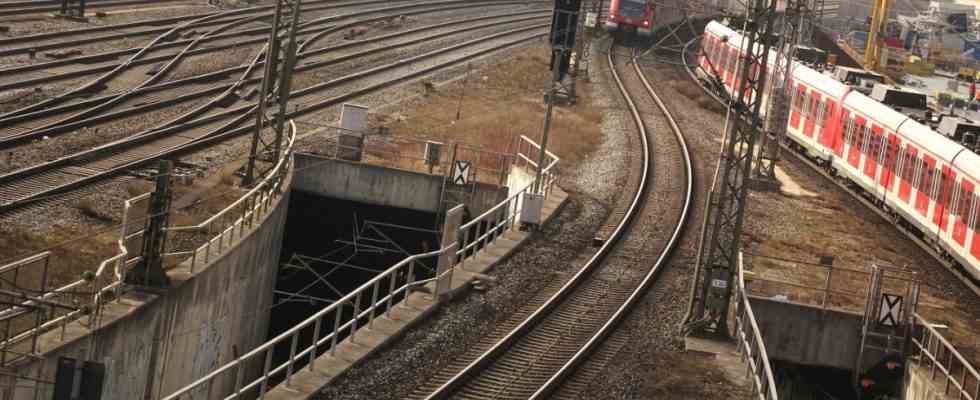When Deutsche Bahn reports to the city council on the progress made in the construction of the second S-Bahn main line, it leads to either horror or gallows humor. On Wednesday, Hans-Peter Mehling, the Free Voter City Councilor, made the desperate humoresque contribution to the planning committee. In view of the schedule presented, Bahn should not forget the 80-year-old political retirees at the opening ceremony, said Mehling. Mayor Dieter Reiter (SPD), for example, or himself.
During his recent visit to the city council, project manager Kai Kruschinski only confirmed widely known deadlines: Completion of the second tunnel from 2035 to 2037. End of the earthworks on the Marienhof behind the town hall in 2026. And the new reception building at the main station will not be ready before 2038, said he. After all, Deutsche Bahn hopes that by the end of this year or early 2024 at the latest, the planning approval, i.e. the building rights, will be available for the second main route to the Ostbahnhof.
The political positions in the city council are gradually taking on a ritual character: the parliamentary groups Left/The Party, FDP/Bavarian Party and ÖDP/Munich-List are demanding the immediate cessation of the project in view of the escalating costs and the schedule that has gotten out of joint. The Greens/Pink List regret that the decision was not made in favor of a north and south ring for the S-Bahn, but in favor of the tunnel they never loved. SPD/Volt and CSU/Free Voters reluctantly admit to the second regular route and reject all alternative plans and fantasies as unrealistic.
This time, however, the Social Democrats pursued a dual strategy against the railways. While faction leader Christian Müller routinely talked about the high costs and the long deadlines for completion at the planning committee meeting, especially at the main train station, his parliamentary group then followed up with a harsh press release. In a fit of anger, it was enumerated what the delays in the main route meant for the entire city planning: a “disaster”.
The domino effect of delay affects many projects
The SPD “prevents” important projects and “denies” Munich’s traffic turnaround, writes the SPD in its general statement. And she enumerates what the domino effect of the main route delay is having: on the Westtangente tram line, the new pedestrian zone in the valley, the green oasis at Marienhof, an attractive main station. And also on the conversion of the southern station district. In addition, the SPD is annoyed that, from their point of view, the Munich railway junction is being completely inadequately expanded. There is no progress on the north or south ring for the S-Bahn, on the route for the Brenner feeder in the east or on the commuter route towards Mühldorf.
Most of the parliamentary groups in the city council would have signed the SPD’s demands: “Faster completion of the major construction site at the main station, a solution for the valley to enable prompt improvements for residents and passers-by and an overall concept for the railway expansion around the node Munich, which also deserves its name”. The desire for the railways to look for ways to speed up their projects was also expressed in the planning committee. But railway project manager Kruschinski dismissed this coolly. There are few such opportunities, he said.
When asked about the costs, which are borne by the Free State and the federal government, but which are also of interest to Munich politics, Kruschinski stayed true to his company’s line: it’s better not to say anything that hasn’t been known for a long time. He gave the city council a construction cost of seven billion euros. Status 2021. He did not want to quantify the increase in construction costs since then, which suggest a total amount of more like 8.5 billion euros.

